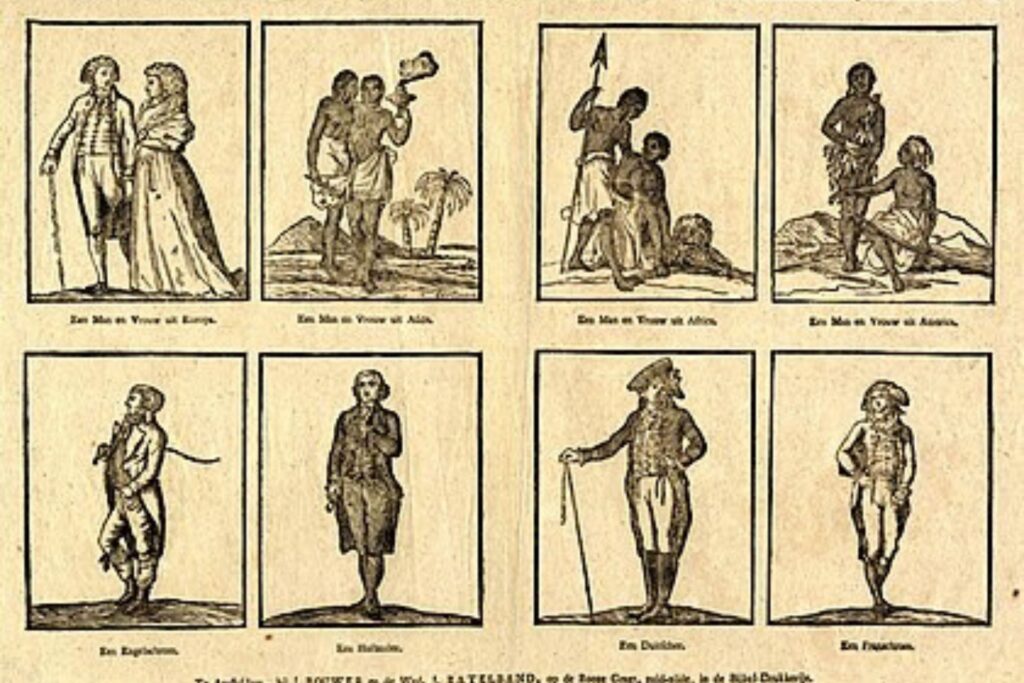Introduction: Have you ever heard someone say, “All Telugu people are amazing at mathematics,” or “Telugu women are great homemakers”? These statements are examples of stereotypes. But what exactly is a stereotype? And why is it important to understand them, especially in the context of stereotype meaning in telugu ? Let’s dive in and explore.
What is a Stereotype?
A stereotype is a widely held but fixed and oversimplified image or idea of a particular type of person or thing. It’s like putting people into boxes based on generalized traits. While some stereotype meaning in telugu might seem harmless or even positive, they often lead to misjudgments and perpetuate biases.
Importance of Understanding Stereotypes
Understanding stereotypes is crucial because they affect our perceptions and interactions. They can limit opportunities for individuals and perpetuate inequalities. By recognizing and addressing stereotypes, we can foster a more inclusive and fair society.
Understanding Stereotype in Telugu Context
In Telugu, the word “Stereotype” can be translated to “స్థిర రూపకల్పన” (Sthira Roopakalpana). This term encapsulates the concept of fixed and oversimplified ideas about people or things.
Common Telugu Terms Related to Stereotypes
Besides “స్థిర రూపకల్పన,” other related terms include:
“ప్రమాదక రూపకల్పన” (Pramadhaka Roopakalpana) – Prejudiced stereotype
“ప్రత్యేకత” (Pratyekata) – Distinction or peculiarity, often used in discussing uniqueness versus stereotypes.
Historical Background
Stereotypes have deep roots in history. In Telugu culture, they often originated from traditional roles defined by literature, folklore, and ancient societal structures.
Influence of Literature and Folklore
Telugu literature and folklore have played significant roles in shaping stereotypes. Stories and myths passed down generations often depict characters in stereotypical roles, reinforcing certain traits as inherent to specific groups.
Types of Stereotypes in Telugu Society
Gender stereotype meaning in telugu culture include notions like men being the breadwinners and women being homemakers. These roles, although evolving, still influence societal expectations.
Caste Stereotypes
Caste-based stereotypes are prevalent, with certain castes being pigeonholed into specific societal roles. This has long-standing implications on social mobility and equality.
Regional Stereotypes
People from different regions within Telugu-speaking states may face stereotypes, such as coastal Andhra people being considered more business-minded compared to those from Telangana.
Religious Stereotypes
Religious stereotypes often create divisions and misconceptions, influencing how people of different faiths interact and perceive each other.
Impact of Stereotypes on Society
Social Impact
Stereotypes can lead to social segregation, discrimination, and a lack of cohesion. They create barriers that prevent people from interacting freely and understanding each other.
Psychological Impact
On an individual level, stereotypes can affect self-esteem and mental health. Constantly being judged or underestimated can lead to anxiety, depression, and a diminished sense of self-worth.
Economic Impact
Stereotypes can limit job opportunities and career advancements. For instance, if a certain group is stereotypically seen as less capable in a particular field, members of that group may face unjust professional barriers.
Representation of Stereotypes in Media
Telugu cinema and television have often portrayed stereotypical characters, reinforcing societal norms. However, there has been a shift towards more nuanced and diverse representations in recent times.
News and Journalism
Media can perpetuate stereotypes through biased reporting. Sensationalized news often highlights negative traits associated with specific groups, reinforcing public prejudice.
Social Media
Social media is a double-edged sword. While it can spread stereotypes quickly, it also provides a platform for challenging and breaking them through awareness campaigns and positive representation.
Breaking Stereotypes
Education plays a pivotal role in breaking stereotypes. By promoting critical thinking and inclusivity, educational institutions can help students understand and challenge stereotypes.
Influence of Progressive Movements
Progressive movements advocating for gender equality, caste abolition, and LGBTQ+ rights have significantly challenged traditional stereotypes, pushing for a more inclusive society.
Government and Policies
Government policies aimed at promoting equality and diversity are crucial. Affirmative actions and anti-discrimination laws help in dismantling institutionalized stereotypes.
Case Studies
Success Stories of Breaking Stereotypes
There are numerous success stories where individuals have broken free from stereotypes. For example, Telugu women excelling in fields like technology and leadership, defying traditional gender roles.
Notable Figures Challenging Stereotypes
Prominent figures like K. Viswanath in cinema and Gurram Jashuva in literature have used their platforms to challenge and change societal stereotypes.
How to Address Stereotypes in Daily Life
Encouraging Open Conversations
Open conversations about stereotypes can lead to greater awareness and understanding. Discussing biases and their impact is a crucial step towards change.
Promoting Inclusivity and Diversity
Actively promoting inclusivity and diversity in communities, workplaces, and schools helps in creating environments where stereotypes are less likely to thrive.
Practical Tips for Individuals
Individuals can combat stereotypes by:
Reflecting on their own biases.
Calling out stereotypical comments.
Educating themselves about different cultures and perspectives.
Being allies to those affected by stereotypes.
FAQs
What is the Telugu term for stereotype?
The Telugu term for stereotype is “స్థిర రూపకల్పన” (Sthira Roopakalpana).
How can one identify stereotypes in their thinking?
To identify stereotypes in your thinking, reflect on whether your assumptions about someone are based on generalized traits rather than individual attributes.
What role does education play in breaking stereotypes?
Education promotes critical thinking and inclusivity, helping students understand and challenge stereotypes effectively.
Are there any movies in Telugu that challenge stereotypes?
Yes, movies like “Mahanati” and “Pelli Choopulu” have challenged traditional stereotypes, offering more nuanced portrayals of characters.
How can social media be used to combat stereotypes?
Social media can combat stereotypes by spreading awareness, sharing positive stories, and providing platforms for marginalized voices to be heard.
Conclusion
Stereotypes are powerful yet flawed perceptions that can deeply affect society. By understanding and addressing them, especially within the context of stereotype meaning in telugu culture, we can move towards a more inclusive and equitable world. It’s about recognizing the individual beyond the stereotype and celebrating diversity.

